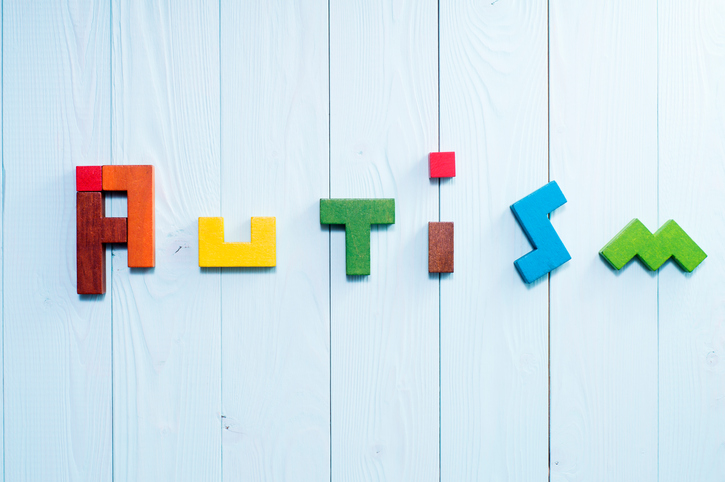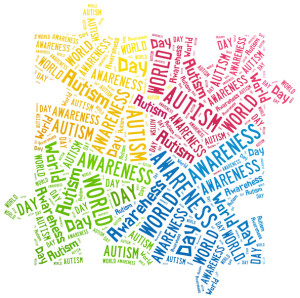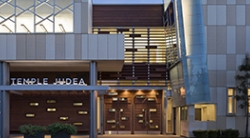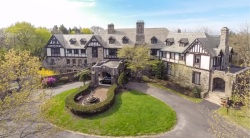
Prodigies continue to amaze us. We are all astonished at the three-month-old who is speaking to siblings or the seven-year-old whose paper was accepted for publishing, or the young vocalist with the perfect pitch, or the young artist whose work is being shown at the local galleries.
We admire the young student who has devised a new math discipline or the chef/scientist who understands the chemical ingredients and how they work together in the food preparation process.
They all have high degrees of intelligence. They have great working memories and pay close attention to details. They have their own fascination with special interests.
But some of these highly intelligent young people are hiding their fears and struggling with some kind of shortcoming or disability. Up to 70 percent of autistic children have some form of mental disability.
Some, although great with details, cannot see the big picture. They cannot plan ahead or get organized. They can’t seem to “get it all together.” They are autistic.
Some have no friends and lead a very lonely existence. They may be ridiculed or shunned by school peers. They wish they had a friend – just one real friend.
Some of these young people, then, are both intelligent and autistic. It is often difficult to tell these conditions apart. It is hard to identify a child’s gifts as well as his or her challenges. One condition may mask the other.
Autism linked to intelligence (genius and autism)
Research studies have revealed that many children who are prodigies with high intelligence share traits with autistic children. They both are extremely attentive to detail. They are obsessed with detail.
In testing, the child prodigies scored higher on the subject of details than did children diagnosed with Asperger’s Syndrome, a high-functioning form of autism. This leads credence to the observation that it is difficult to tell the conditions apart from one another.
Many children exhibit the characteristics of both conditions. A young child was observed to be speaking at three months and then stopped speaking at 18 months. He began speaking again at two-and-a-half years and was diagnosed with autism at age three.
Autism linked to genetics
Scientists believe that genetics plays a major role in both autism and higher intelligence. They suggest that the genes responsible for autism actually promote higher intelligence. Research has shown that autistic children score higher on intelligence tests than non-autistic children. But scientists also say the relationship between autism and giftedness is unclear.
Researchers in London have said they believe that on average, 98 % of autism in children can be explained by genetics. It is a largely inheritable disease. Studies have indicated that families with autistic children include close relatives who also have the disease.
One theory is that some autistic children with high intelligence have a genetic structure that masks autistic characteristics like social aberrations. The genetics provide intelligence while blocking the downside. The autism is masked.
How can you tell the difference between autism and giftedness? Testing is a real problem for researchers.
Autism and how the brain is wired
More and more work is being done on how the autistic child’s brain is wired. Research indicates that there is an observable pattern in synaptic connections. There appears to be an over-abundance of connections in local regions of the child’s brain and a diminished amount of connections to distant regions.
This wiring pattern can explain a higher order of attention, perception, and memory (local regions) and a weakened ability to handle sensory overload (distant regions). This in turn can explain the difficulties the autistic child has with communications and social interaction.
The brains of intelligent children may function similarly to those of autistic children. But the difference may be that there are more connections in distant regions of their brains, thus masking potential disability. There is less overloading for them and less chance of being dysfunctional.
The common pattern of locally strong connections for both autistic and gifted children accounts for the strong memory abilities for both.
Testing: IQ vs. behavioral abilities
A classic testing situation is often mentioned when autism or giftedness is involved. A shy autistic child who is wary of strangers and who is bothered by fluorescent lights is sent into a room for testing. The room is very bright, and the child has never met the person conducting the test.
Do you think this child will do very well on IQ testing?
What is now being considered is additional testing for suspected mental disability, involving not only IQ reasoning but also behavioral testing. This is called adaptive functioning. How well does a child take care of himself or herself? Can these children dress themselves, get to school and back and effectively on the bus, and have the life skills to deal with their environment on a daily basis?
Can these children bathe themselves, take proper medications at the right time, and act independently of adult supervision as they grow older? More research is needed to devise the comprehensive testing needed to paint an accurate picture of an autistic and/or gifted child.
 Awareness is needed
Awareness is needed
There are intelligent, gifted and talented children in the world who are trying to establish their own identities and make significant contributions to society. We marvel at their abilities and accomplishments. We may have a child like this in our own family.
We may make the wrong assumption that these children are so advanced that they can do just about anything they set their minds to. They don’t need our help.
And that’s where we need to stop and consider whether these children may also be autistic. We have to look beyond the intelligence, beyond the things that amaze us.
We need to be aware of possible problems with teacher misunderstandings, with peer pressures and intimidation, with difficulty making friends, with lack of organizational skills, or with a diminished ability to do the fundamental daily tasks of living in a family.
The right support structure can be put in place to assure not only intellectual opportunity and development but also the equally important aspects of self-respect, social acceptance, confidence and personal pride.






